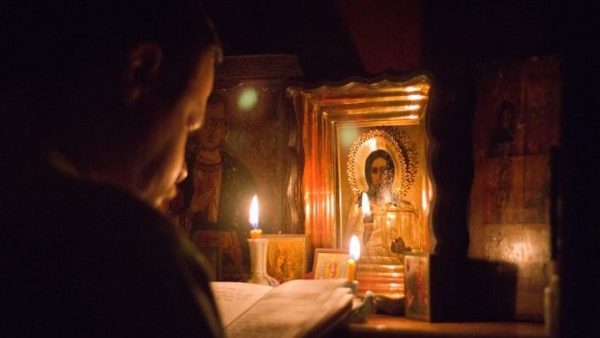A father brings his epileptic son to Jesus for a healing. At first, the father does not find Jesus but he finds some of the disciples. They are unable to heal the boy. The father’s faith is shaken. When Jesus arrives, the father says to Him: “If you can do anything, have pity on us and help us.” Jesus replies: “If you can? All things are possible to him who believes.” The father cries out: “I believe, Lord! Help my unbelief” (Mark 9:22-24)!
We sympathize with the father’s situation. His honesty draws our admiration. He freely admits his doubt but that doesn’t stop him from asking for help. We learn also that faith and doubt are not necessarily opposites; they can co-exist. More importantly, sincere doubt is not an obstacle to God’s blessings. What is faith all about? Is faith like tossing a coin? A leap into a dark unknown? No. Faith is assurance, trust or confidence in someone or something that is true and reliable, and thus worthy of our trust and commitment. Faith has three closely related parts, and they have to do with our minds, our hearts and our actions.
The mind part of faith is intellectual. It’s about learning what we believe as Orthodox Christians and about being persuaded concerning the meaning of our beliefs. We accept the truth of certain teachings and practices. We are persuaded that our Orthodox beliefs are true and worthy of our commitment. For example we understand and accept that God is a loving and merciful Father because Christ and the Scriptures so teach us. We understand and affirm that Jesus is the Christ, the Lord and Savior, because we are persuaded by the attraction of His character and the truth of His words and actions. We humbly affirm the priority of the Orthodox Church because we are convinced that the Orthodox Church has maintained in genuine continuity the teachings and practices of the ancient Apostolic Church. All of these truths make up “mind knowledge” of the Orthodox Faith. These beliefs are open to study and reflection. The clearer we are about the meaning of our beliefs, the more convinced we become that they are true and reliable, far more so than just tossing a coin or leaping into some ignorant unknown.
The heart part of faith is emotional. It engages our inner self, the spiritual center and source of our will, desires, convictions and choices. Mind knowledge becomes “heart knowledge” through commitment and devotion. For example the truth that God is a loving and merciful Father becomes a commitment and devotion to God as our own personal loving and merciful Father. The truth that Christ is the Lord and Savior, and the One who taught the way of love and forgiveness becomes a commitment and devotion to Christ as our own personal Lord and Savior whose love and forgiveness energizes our own life. The truth that the Orthodox Church is the holy and loving community of God becomes a commitment and devotion to parish life as brothers and sisters living and working together in mutual love, forgiveness and holiness. Mind knowledge can remain abstract and neutral, a formal or nominal faith, without actual effects. Heart knowledge is our embrace and commitment that, by God’s grace, turn into a vibrant and transforming faith which impacts the quality and direction of our daily life.
The action part of faith refers to our actual conduct and the formation of our character through prayer, worship and Christian living in the world. Here is where both mind knowledge and heart knowledge, always with God’s help, find their actual expression as gifts of the Spirit: “love, joy, peace, patience, kindness, goodness, faithfulness, gentleness, self-control” (Gal. 5:22). Here is where glimpses of God’s kingdom shine in our midst. Here is where faith becomes a mature and powerful way of life, able to face trials and afflictions, yet not without temptations and doubts too.

















